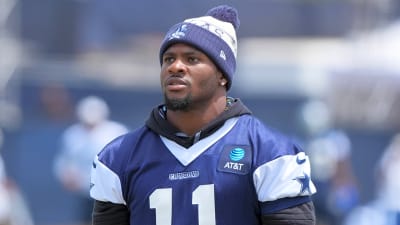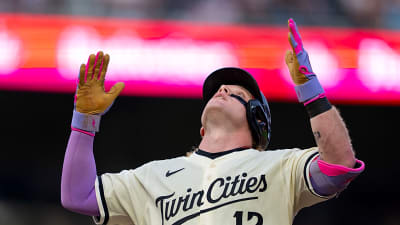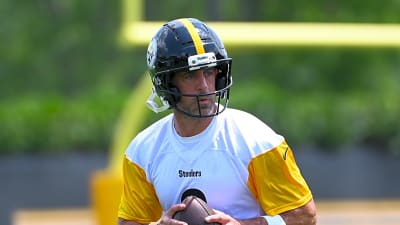
Luka Doncic and four 'revenge' seasons that bode well for the Lakers
After a shocking trade to the Los Angeles Lakers, Luka Doncic has devoted months to intensive conditioning this summer. With the five-time All-NBA guard looking "lean as heck," Doncic seems intent on proving the Dallas Mavericks made a mistake in trading him.
He's not alone in NBA history. Here are four examples of players who responded to a rejection from their former teams with massive seasons.
Moses Malone, Philadelphia 76ers, 1982-83
Malone emerged as a star after joining the Houston Rockets as a 21-year-old. He led the Rockets to the 1981 NBA Finals, set records for offensive rebounds, made five All-Star teams and won two MVP awards, the second of which in 1982. But when he became a free agent, the Rockets didn't want to meet Malone's salary demands and traded him to the Philadelphia 76ers.
While Malone's scoring numbers went down on the star-laden Sixers, he still averaged 24.5 points and a league-leading 15.3 rebounds, winning his third MVP trophy. In the playoffs, Malone was even better, averaging 26 points, 15.8 rebounds and 1.9 blocks as the Sixers went 12-1 in the playoffs and swept the Lakers in the NBA Finals — where Malone was also the MVP.
Jason Kidd, New Jersey Nets, 2001-02
The Phoenix Suns were coming off a first-round playoff loss to the Sacramento Kings in 2001 when they made a classic "challenge" trade, dealing 27-year-old Jason Kidd to the New Jersey Nets for 23-year-old point guard Stephon Marbury. Marbury was younger, signed longer and was a flashier player than Kidd, but Kidd turned into a Hall of Famer and one of the best defensive point guards in history.
Kidd went on to lead the Nets to the best record in the Eastern Conference and their first berth in the NBA Finals. He averaged 14.7 points, 9.9 assists, 7.3 rebounds and 2.1 steals as the Nets improved by 26 games over the previous season. Kidd finished second in the MVP vote to Tim Duncan, then proved it was no fluke by winning the East again in 2003.
Steve Nash, Phoenix Suns, 2004-05
When Steve Nash became a free agent in 2004, Mavericks owner Mark Cuban wasn't willing to pay his 30-year-old point guard big money to stay. So, in what Cuban called his "biggest mistake ever," he refused to match Nash's offer from the Phoenix Suns.
On @EtanThomas36's "The Rematch," Mark Cuban (@mcuban) said that he regrets letting Steve Nash leave the Mavericks to sign with the Suns.
— Alex Kennedy (@AlexKennedyNBA) October 31, 2020
"That's my biggest mistake ever. Not even close, it's my biggest mistake ever. Nash hated me for a long time because of it. We're good now." pic.twitter.com/diIn2vMZdj
In Phoenix, Nash led the Suns' "seven seconds or less" offense to 62 wins. Nash led the NBA with 11.5 assists, shot 43.1% from three-point range and won the first of two consecutive MVP awards. In the second round of the playoffs, Nash cemented his revenge by knocking the Mavericks out of the playoffs in a series where he averaged 30.3 points and 12 assists and scored 39 points in the clinching game.
Steve Nash 2005 Playoffs:
— Hoop Muse (@HoopMuse) June 20, 2025
23.9 PPG
11.3 APG
4.8 RPG
52/39/92%
Closing out the 58-24 Mavs in Game 6 ⬇️
39 PTS | 9 REB | 12 AST | 14/24 FGpic.twitter.com/jEZVo7Jh8L
Shaquille O'Neal, Miami Heat, 2004-05
When the Los Angeles Lakers chose Kobe Bryant over Shaquille O'Neal when the two were feuding in 2004, O'Neal was shipped to the Miami Heat where former Lakers head coach Pat Riley got "The Big Aristotle" to get in shape.
Riley told Dan LeBatard that O'Neal went from 383 pounds and 14% body fat to 323 pounds and 12% body fat by the end of the season. The leaner O'Neal averaged 22.9 points on 60% shooting and grabbed 10.4 rebounds, finishing second to Nash in the MVP vote. A year later, the Heat won their first NBA title.
More must-reads:
- Lakers set to surprise next season
- Mavericks unveil new plan to soften blow from Luka Doncic trade
- The 'Most points in an NBA Christmas Day game' quiz
Breaking News
Trending News
Customize Your Newsletter
 +
+
Get the latest news and rumors, customized to your favorite sports and teams. Emailed daily. Always free!








